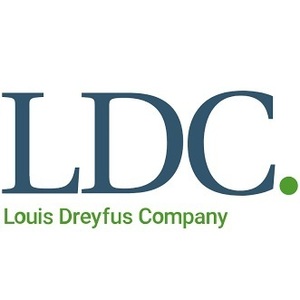Louis Dreyfus successfully completes B30 trial

May 4, 2022
BY Louis Dreyfus Co.
Louis Dreyfus Company B.V. announced on April 29 the successful completion of a biofuel trial carried out in collaboration with Wisby Tanker AB, Sweden (Wisby Tanker) on one of LDC’s upgraded Juice vessels, MV Essayra. The company used a B30 biofuel-blended marine fuel for the first time to sail from LDC’s terminal in Ghent, Belgium, to LDC’s other terminal in Santos, Brazil, and back again with a full cargo of not-from-concentrate and frozen concentrated orange juices, over a 55-day period.
“As part of LDC’s journey to help shape a net-zero economy, we are committed to contributing to shipping industry decarbonization through a range of actions and initiatives – including to explore alternative fuel solutions,” said Sébastien Landerretche, LDC’s global head of freight. “Result of the coordination between LDC’s Carbon Solutions, Freight and Juice platforms, as well as Wisby Tanker, this successful first trial reflects LDC’s ambition and know-how in the field, and our collaborative approach to tackling the industry’s energy transition.”
Advertisement
A variety of tests were conducted throughout the vessel’s voyage to measure the impact of the B30 biofuel blend on the ship’s fuel system and overall performance. The results show that B30 is a practical and cleaner substitute to traditional Very Low Sulphur Fuel Oil (VLSFO), reducing voyage greenhouse gas (GHG) emissions by about 24 percent – i.e. 723 tons of CO2 equivalent (tCO2e).
LDC compensated the remaining 76 percent of GHG emissions of the voyage through carbon credits sourced through its dedicated Carbon Solutions Platform, making this marine shipment the first carbon neutral orange juice shipment globally. For this purpose, LDC chose to retire a total of 2’262 tCO2e of third-party certified carbon credits from the Kariba REDD+ Project, which protects over 785’000 hectares of forest in Zimbabwe, supports local communities and is certified under internationally recognized carbon standards.
Advertisement
In addition to this biofuel trial, LDC is working on a variety of shipping decarbonization projects, leveraging technologies such as wind assisted propulsion, solar, batteries and air lubrication, aiming always to improve vessel efficiency and reduce carbon emissions from its shipping.
Related Stories
Avfuel Corp., the leading independent supplier of aviation fuel and services, is expanding its sustainable aviation fuel (SAF) footprint with the addition of a new, strategic supply point in Denver, Colorado—the first of its kind in the region.
CVR Energy Inc. on July 30 reported its renewables segment achieved increased throughput during Q2 despite unplanned downtime but reported a net loss of $11 million. The company expects to retroactively claim the 45Z credit for volumes produced.
Total U.S. operable biofuels production capacity expanded in May, with gains for renewable diesel and a small decrease for ethanol, according to data released by the U.S. Energy Information Administration. Feedstock consumption was up.
SAF-producer XCF Global Inc. on July 28 announced it has signed an exclusive, non-binding indication of intent (IOI) with a renewable fuels infrastructure and feedstock solutions company based in the western U.S.
The abrupt closure announcement by Biox Corp. is the latest example of a failure to secure Canada's domestic energy supply, says Unifor. The Canadian energy union is advocating for simply regulatory changes that could help restart the facility.
Upcoming Events










